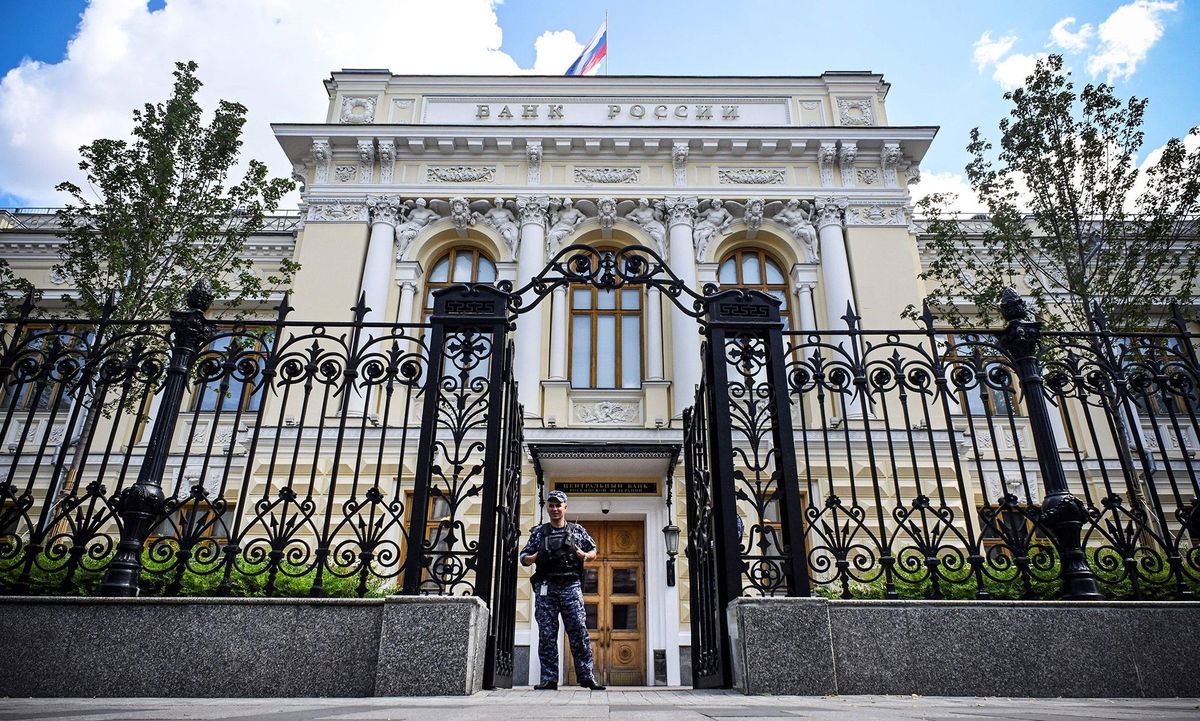Russia’s central bank raises interest rates to 12% after the ruble plunges

A police officer guards the entrance of the Russian Central Bank headquarters in downtown Moscow on July 21.
By Anna Cooban and Vasco Cotovio, CNN
(CNN) — Russia’s central bank hiked its main interest rate by 3.5 percentage points to 12% Tuesday after the ruble hit a 17-month low the previous day.
The ruble strengthened to 98 to the dollar following the announcement, after weakening to 102 Monday.
The Bank of Russia said its decision — made at a special meeting announced Monday — was “aimed at limiting price stability risks.”
“Steady growth in domestic demand surpassing the capacity to expand output amplifies the underlying inflationary pressure and has [an] impact on the ruble’s exchange rate dynamics,” the central bank said in a statement released by its press service.
“The pass-through of the ruble’s depreciation to prices is gaining momentum and inflation expectations are on the rise,” it added.
The central bank said the move was intended to steer inflation down to 4% next year. Annual consumer price inflation in Russia stood at 4.3% in July.
So far this year, the ruble has shed 35% of its value, as Moscow’s war in Ukraine takes a heavy toll — though President Vladimir Putin has insisted that Western sanctions are having a limited effect.
Speaking to CNN’s Erin Burnett late Monday, US Treasury Secretary Janet Yellen said the ruble’s decline reflected the fact that sanctions, as well as the war, were “causing a drain on the Russian economy.”
Analysts were skeptical Tuesday’s emergency action by the Russian central bank would provide a lasting solution to the currency’s problems.
“Today’s rate hike will only temporarily slow the bleeding. The ruble’s depreciation is a consequence of many factors moving against Russia all at once,” Liam Peach, senior emerging markets economist at Capital Economics, wrote in a note.
Those factors include a slump in energy prices and export revenues, and difficulty attracting foreign capital because of sanctions, he added.
Russia’s currency collapsed in the immediate aftermath of Russia’s full-scale invasion of its neighbor in February 2022, falling as low as 136 to the dollar in March 2022.
The-CNN-Wire
™ & © 2023 Cable News Network, Inc., a Warner Bros. Discovery Company. All rights reserved.